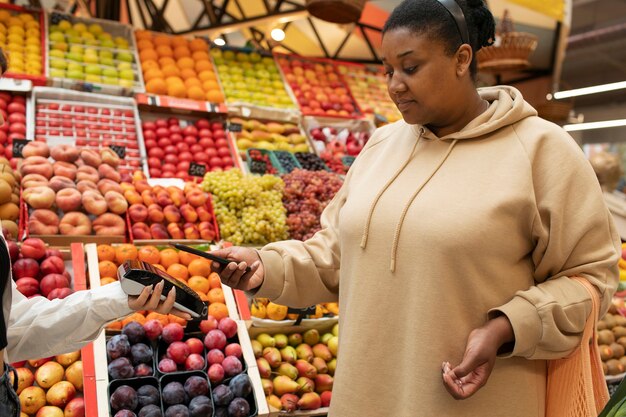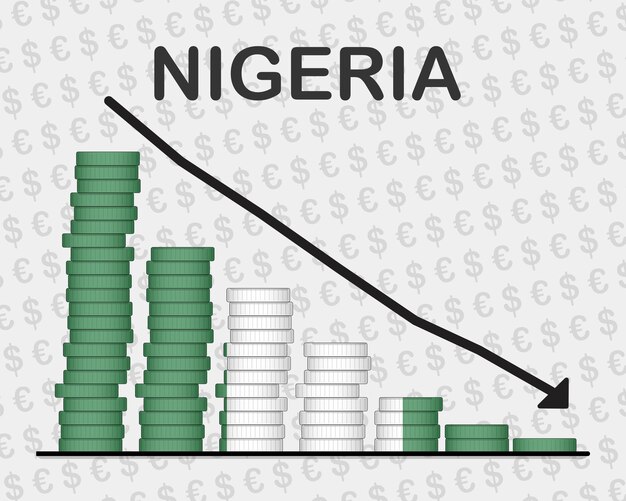Inflation has become a persistent issue in Nigeria, a challenge that continues to weigh heavily on consumers nationwide. Defined as the increase in the prices of goods and services over some time, inflation erodes purchasing power and leads to economic uncertainty. In Nigeria, the inflation rate has been on a sharp incline, affecting the livelihoods of millions of people.
The Current State of Inflation in Nigeria
Nigeria’s inflation rate has been rising steadily over the past few years. According to Trading Economics, Nigeria’s inflation rate reached a staggering 37.5% as of August 2024. This represents a significant increase from previous years, and the impact is being felt across all sectors of the economy. The rising cost of living is most evident in the prices of essential goods like food, fuel, transportation, and housing.

One major factor contributing to inflation in Nigeria is the country’s dependence on imports. Many goods consumed by Nigerians, including food and fuel, are imported. When the naira (Nigeria’s currency) weakens against foreign currencies, import prices rise, leading to higher costs for consumers.
How Inflation Affects Consumers
For Nigerian consumers, the effects of inflation are profound. With rising costs and stagnant wages, the average household is forced to adjust its spending habits. The most noticeable impact is on food prices, as food inflation has been one of the key drivers of overall inflation in Nigeria. Staples such as rice, beans, and maize have become significantly more expensive. This has led to widespread food insecurity, with many families struggling to afford even the most basic meals.

Transportation costs have also risen, in part due to fuel price increases. The removal of fuel subsidies in mid-2023 caused the price of petrol to soar, directly affecting the cost of public and private transportation. Today, a litre of fuel sells for over N1000. As transportation costs rise, they trigger a ripple effect throughout the economy, increasing the cost of moving goods across the country and, by extension, the prices of these goods in the market.
Housing is another sector where inflation is hitting consumers hard. Rental prices in cities like Lagos and Abuja have increased dramatically, leaving many Nigerians unable to afford suitable accommodation. Combined with utility costs, which have also risen, household budgets are being stretched thin.

Beyond these essentials, inflation also impacts healthcare, education, and other critical services. Medical bills and school fees have escalated, putting further strain on families. For the lower-income and middle-class populations, inflation is eroding their standard of living, making it harder to achieve financial stability.
The Government’s Response
The Nigerian government has taken several steps to address inflation, though many consumers feel the measures have been inadequate. One key response has been raising interest rates, a typical monetary policy tool aimed at curbing inflation by controlling the amount of money circulating in the economy. The Central Bank of Nigeria (CBN) has increased its Monetary Policy Rate (MPR) several times in recent years, making borrowing more expensive in an effort to reduce spending and slow down inflation.

However, high interest rates have downsides. By increasing the cost of borrowing, they also discourage business investment, which can slow economic growth. Small and medium-sized enterprises (SMEs), which are a significant source of employment in Nigeria, often rely on affordable credit to expand. With higher borrowing costs, many businesses are struggling to stay afloat, leading to job losses and further economic hardship for consumers.
Coping with Inflation
In the face of rising inflation, Nigerian consumers have been forced to adopt various coping strategies. Many households are cutting back on non-essential spending, prioritising basic needs like food, shelter, and transportation. Some are turning to informal markets or cheaper alternatives to maintain their standard of living.

In addition, the informal economy, which accounts for a large portion of Nigeria’s economic activity, has played a critical role in helping consumers navigate rising costs. Street vendors and small-scale entrepreneurs provide goods and services at lower prices than formal retailers, offering some relief from inflationary pressures.
The Path Forward
While inflation remains a significant challenge, there are potential solutions that can mitigate its impact on consumers. Improving domestic production, particularly agriculture, could reduce Nigeria’s reliance on imports and stabilise food prices. Strengthening the naira through sound fiscal and monetary policies could also help address the root causes of inflation. Additionally, better governance and transparency in public spending could ensure that the benefits of any government interventions are felt by the people who need them most.

Ultimately, addressing inflation in Nigeria requires a coordinated effort from the government, businesses, and consumers. For now, however, consumers will need to continue finding ways to cope with the rising cost of living as the country navigates these economic challenges.
